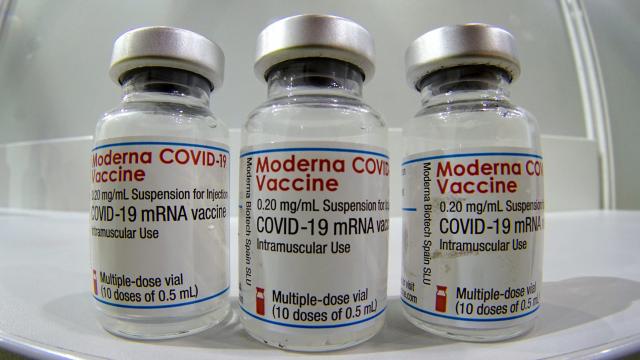A randomised clinical trial in Canada has found that three doses of the Moderna vaccine are effective at boosting organ transplant recipients’ immune response to the coronavirus, suggesting they would be better protected from illness and infection. The finding could result in the expedited approval of third jabs for this vulnerable population.
Solid organ transplant recipients on immune-suppressing medications are often excluded from clinical trials of vaccines, but as the CDC’s Anthony Fauci told CNN’s State of the Union last month, a third jab would likely go a long way toward protecting immunocompromised individuals from covid-19.
The challenge is to make sure that vaccines are both safe and effective for transplant patients with compromised immune systems. To that end, the Canadian government, through its COVID-19 Immunity Task Force and Vaccine Surveillance Reference Group, launched PREVenT COVID (Prospective Evaluation of COVID-19 Vaccine in Transplant Recipients: A National Strategy). The $US2.27 ($3) million USD research program is being conducted at the University Health Network, a research hospital affiliated with the University of Toronto.
This group has been keeping a close eye on transplant patients to see how they respond to covid-19 vaccines, which, to this point, hasn’t been great. Hence the hope in a third jab.
The team knew from previous studies that “two doses were not enough to produce a good immune response against COVID-19 in transplant patients,” Deepali Kumar, a transplant disease physician in the UHN Transplant Centre and a senior co-author of the new study, explained in a statement.
A third dose seemed like the logical answer, but concerns existed that repeated vaccinations might increase chances of organ rejection. Accordingly, the purpose of the newly completed project was to evaluate the response of transplant recipients — who are on immune-suppressing medications to prevent organ rejection — to a third vaccine dose.
For this randomised double-blind study, the team studied 120 transplant patients from May 25 to June 3 of this year. The median age of the patients was 66.6 years, none had previously contracted covid-19, and all had previously received two doses of the Moderna vaccine (mRNA-1273 vaccine). The findings of this research are published today in the New England Journal of Medicine.
The group was split in two: Half received a third Moderna shot two months after receiving their second shot, and the other half received a saline placebo. Patients in the three-dose Moderna group exhibited mild side effects and, importantly, no severe health outcomes.
“We followed patients very closely for evidence of acute organ rejection and for any change in the function of their transplanted organ,” Atul Humar, medical director of the Ajmera Transplant Centre at UHN and a senior co-author of the study, explained in an email. “We did not have any patients develop rejection in the follow-up period of the study.”
The antibody response rate for patients in the Moderna three-dose group was measured at 55%, whereas the figure was closer to 18% among the placebo group. Neutralising antibodies were detected in 60% of the three-dose patients and in 25% of the patients who received the placebo. The scientists also documented a boost in T-cell production — a potent ally in the body’s fight against infection — among the three-dose Moderna group.
“We conclude that a third-dose booster Covid-19 vaccine should be considered, in conjunction with regulatory approval, for transplant recipients who have received two doses of mRNA-1273 [Moderna],” the scientists wrote in their study.
The scientists chose Moderna because it has a higher dose of antigen compared to Pfizer (antigens are molecules that stimulate an immune response). That said, “we believe the results are applicable to the Pfizer vaccine because it has a very similar mechanism of action,” that is, both are mRNA vaccines, Humar explained. As for patients who received AstraZeneca, “further trials would be needed to confirm the optimal boosting regimen,” he added.
I also asked Humar about that dreaded variable, the Delta variant, and whether it was factored into the new study.
“Because we measured multiple aspects of the immune response, we believe the results will apply to protection from the Delta variant,” he responded. “We are currently doing follow-up studies to help confirm this.”
The team is now hoping for “a change in regulatory guidance to recommend [a] third dose vaccine for transplant patients who have received two doses of mRNA vaccine,” Humar wrote. To that end, they’ve shared their findings with the U.S. Food and Drug Administration (FDA), the Canadian National Advisory Committee on Immunization (NACI), the American Society of Transplantation, among other institutions.
This is great news, especially given the recent spike in covid cases around the world and the disturbing rise of the Delta variant. It’s also great to see that measures can be taken to protect immunocompromised patients — a population with already enough to worry about.
